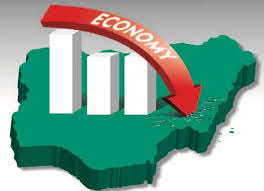Nigeria’s rising fiscal deficit could hit 6.1 per cent of its Gross Domestic Product (GDP), the International Monetary Fund (IMF) has said.
This was contained in the latest Staff Article Consultation report released in Washington on Thursday.
A fiscal deficit is a condition when the expenditure of the government exceeds its revenue in a year.
IMF said the escalating food prices and insecurity had become very ugly features in the Nigerian economy.
It said, “the economic outlook is challenging with high food prices raising food security concerns.”
However, the IMF noted that Real GDP growth was broadening to all sectors except oil, while inflation remains elevated.
The staff team was IMF led by Jesmin Rahman who held meetings with the Nigerian authorities from June 6-10, 2022, to discuss recent economic and financial developments and the economic outlook for the country.
According to the statement, “Economic recovery continues to gain strength on the back of services and agriculture with GDP growth reaching 3.6 per cent year-on -year (y/y) in the first quarter of 2022.
“At least data shows economic growth broadening to all sectors except oil, where production remains weak reflecting continued security and technical challenges.
“Inflation has reached 17.7 per cent (y/y) in May led by a renewed surge in food prices, exacerbated by the war in Ukraine, and raising food security concerns as over 40 percent of the population live below the poverty line.
Interest Rate
The Central Bank of Nigeria as part of the measures to control inflation had recently hiked its monetary policy rate by 150 basis points to 13 per cent.
“Regarding the external sector, the current account deficit narrowed significantly in 2021 helped by import compression and higher net oil balance.




